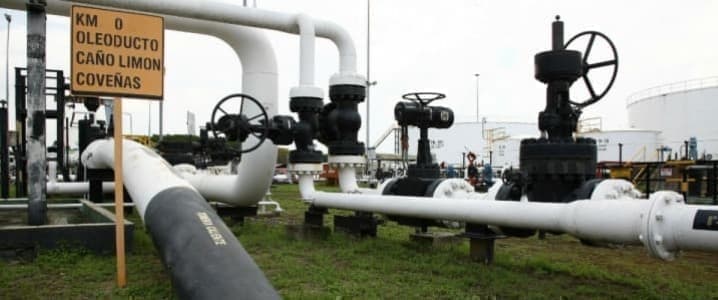Despite significant headwinds, including a prolonged oil price slump, Colombia’s national oil company Ecopetrol reported a solid third quarter 2020 profit with net income of around $222 billion. This represented a notable improvement over the $6.5 million profit reported for the previous quarter, although it was significantly less than 2019. This significant improvement in earnings reflected the higher oil prices during the period with the average basket price per barrel of oil received by Ecopetrol increased by almost 27% compared to the second quarter 2020. Those improved results bode well for Colombia’s oil industry with the national oil company Ecopetrol being a key driver for the exploitation of the Andean country’s oil potential. By late July 2020, Ecopetrol has announced it was partially restoring its 2020 budget for capital expenditures in response to firmer oil prices. After slashing capital spending in early May in response to sharply weaker oil prices and the impact of the COVID-19 pandemic on to $2.5 to $3 billion, which Ecopetrol announced in July would increase to $3 billion to $3.4 billion, similar to spending in 2019. Ecopetrol’s ratcheting up of investment in operations is a particularly positive development for Colombia’s oil industry because the company is responsible for over 90% of the Andean country’s oil output. It was not only Ecopetrol which reported stronger quarterly results. The largest privately owned oil producer in Colombia, and second largest overall, Frontera Energy reported third quarter production expanded by just over 1%, quarter over quarter to 43,202 barrels daily. Despite pumping more crude oil and firmer international Brent pricing Frontera’s third quarter loss ballooned out to $90 million compared to $68 million for the previous quarter. That large loss can be primarily blamed on non-cash impairments related to the purchase of IVI which owns and operates Sociedad Portuaria Puerto Bahia S.A the controlling entity for a Cartagena cargo terminal specializing in oil transportation. Frontera’s oil output will grow over the remainder of 2020 with the driller having brought most of its Colombian oil fields back online, also boding well for higher national oil production.
Parex Resources, Colombia’s third largest oil producer, announced some solid results when the difficult operating environment is considered. Oil production expanded by 8% compared to the previous quarter to a daily average of 44,305 barrels of oil equivalent. Net income soared by an impressive 43% quarter over quarter to $27.6 million. In a positive development for Colombia’s beaten-down oil industry Parex stated in early October 2020 that it had reactivated its exploration program. That saw the company commit to full-year 2020 capital spending of $130 million to $145 million which is greater than the $100 to $110 million of revised 2020 capital expenditures announced in April 2020 in response to the COVID-19 pandemic.
Related: M&A Heats Up In Canadian Oil Patch
It was not all good news for Colombia’s oil industry. The Andean country’s fourth largest producer Gran Tierra Energy, which is focused on the Putumayo Basin, reported a 6% quarter over quarter decline in third quarter 2020 oil production to an average of 18,944 barrels daily. This decline is mainly the result of local farmers blockades in the Southern department of Putumayo which compelled Gran Tierra to declare force majeure for the affected oil fields impacting production. The company claims the blockades have been lifted, boding well for an uptick in the volume of crude oil pumped over the remainder of 2020. This, however, highlights Colombia’s deteriorating security situation and the risks posed to the Andean country’s economically crucial oil industry by civil dissent. Higher oil prices and a focus on cost cutting saw Gran Tierra report a net loss of $107.8 million which was less than a third of the second quarter’s $370.6 million loss.
The results posted by Colombia’s main incumbent oil producers demonstrate activity in the country’s vital oil industry is recovering. They also, nevertheless, indicate that there is still a considerable journey ahead for the performance of the Andean country’s oil industry to return to pre-COVID-19 levels. That is evident from the latest rig count data released by Baker Hughes. By the end of October 2020 there were only 13 operational drilling rigs in Colombia, one more than a month earlier but still less than half of the 30 operational rigs for the equivalent month in 2019.

Source: Baker Hughes and U.S. EIA.
As the chart illustrates, activity in Colombia’s economically important oil industry remains soft despite improved third quarter oil production from the major incumbents.
The fallout from the COVID-19 pandemic and sharply weaker oil prices could not have come at a worse time for Colombia. Headwinds were already battering the economically all-important oil industry toward the end of 2019. The National Hydrocarbons Agency’s (ANH – Spanish acronym) June 2019 auction received a very tepid response with oil companies only bidding for 15 of the 59 blocks on offer. Those bids were from national oil company Ecopetrol and its subsidiaries as well as industry incumbents Frontera, Parex, Gran Tierra, Canacol Energy, GeoPark. That distinct lack of interest can be blamed on a notable uptick in civil dissent, the outbreak of national protests against President Duque’s administration and deteriorating security, particularly in the countryside where Colombia’s upstream oil industry operates. Since the advent of the COVID-19 pandemic Colombia’s security situation has deteriorated, which along with soft prices and a poor outlook for oil points to even less investment in the country’s oil industry as the October 2020 auction results demonstrate.
By Matthew Smith for Oilprice.com
More Top Reads From Oilprice.com:
- Oil Prices Jump On Large Crude Inventory Draw
- Four OPEC+ Members Favor Extended Cuts
- The U.S. Officially Quits The Paris Climate Agreement


















